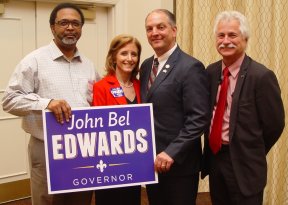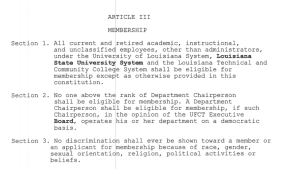I just recently watched Harlan County, U.S.A., directed by Barbara Kopple, about the mineworkers in Kentucky who endured a long and painful 13-month strike in 1974 to gain a contract from the mine operators. Kopple won an academy award for the film for Best Documentary Feature in 1976. If you want a quick introduction to the basics of organizing, this film instructs well, giving all the basic components: workers, owners, scabs, contract, union. It also got me to thinking about other films with a similar content that came readily to mind, like Coal Miner’s Daughter (1980), Norma Rae (1979), and Silkwood (1983). It occurred to me that the 70s was a time for pro-labor films; and then I wondered what happened to that theme.
The 80s happened. Reagan happened. That’s what happened. What I had known as a young person, that Reagan turned the country markedly to the right culturally and politically, came back to me in a wholly new and fresh way. As the credits rolled on Harlan, I recursively reread the 80s; I always knew it was a reactionary time, but Harlan in retrospect drove home for me just how dangerously and consummately the 80s and Reaganomics effectively shut down a worker movement. In fact, even now, we reject the 70s as a horrible time for culture in general: disco and pop music, hairstyles, fashion all draw scornful laughter as we look back on it.
What if our disdain of disco duck and the Bee Gees and Saturday Night Fever is really born in the rejection of freedom movements? The 70s were, after all, the decade after the 60s. And freedom and civil and worker movements were gaining some real traction. Stonewall. Roe v. Wade. A look at 70s narrative fiction films attests to what is now for us an estranged discourse of social criticism and stories of the marginalized: The Deer Hunter, Chinatown, Taxi Driver, Shaft, Soylent Green, Dog Day Afternoon, Saturday Night Fever.
So what to make of this? Workers surged in the 30s in America and then they were put down in the 40s and 50s, then they surged again in the 60s and 70s. And then we were shut down. And have been since. So, I say, get out your Bee Gees albums. Or download Too Much Heaven and Staying Alive from ITunes, and listen to those groovy sounds. Dance naked in your house and sing to the dog. Maybe even read up on Stonewall, and watch a Village People YouTube video, if you’re brave. The gay, bad taste of the 70s is actually a pinnacle of artistic, political, and social achievement that deserves not our scorn but our earnest admiration and a sincere revisit. Watch Harlan County, U.S.A.
Valerie Holliday
Vice President
UFCT 1130






